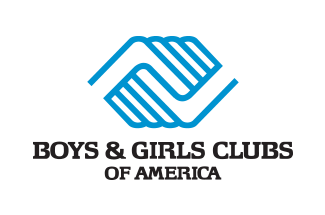
WASHINGTON, D.C. – February 27, 2018 – Boys & Girls Clubs of America, in partnership with U.S. Senators Shelley Moore Capito (R-WV) and Jeanne Shaheen (D-NH), hosted a congressional briefing on youth opioid prevention on Tuesday, February 27 at the U.S. Capitol Visitors Center. The briefing was put together to address the opioid crisis ravaging communities across the country.
Community leaders gathered to show their commitment for youth opioid prevention and highlighted the importance of their efforts in addressing the epidemic. Panelists from Boys & Girls Clubs and city police departments presented their own unique and compelling story about best practices, and the role community organizations play in addressing the epidemic.
“I’ve always said that solving the drug epidemic requires an all-hands-on-deck approach, and organizations like the Boys and Girls Club play an important role in that fight,” Senator Capito said. “The next generation of West Virginians has the power to help combat the growing drug crisis and to inspire others to do the same. Thanks to the Boys and Girls Club in Martinsburg and their work with local and national law enforcement, more young men and women have the opportunity to see how they can make a difference and lead a drug-free life. I am confident that with this continued collaboration, we can help end this epidemic.”
With more than 4,300 Clubs nationwide, over 438,000 kids and teens enter the doors of a Boys & Girls Club every day. Boys & Girls Clubs offer educational, healthy lifestyle and leadership programs during those critical hours of 3 to 6 p.m. (8 p.m. for teens), when youth are most likely to get involved in high-risk activity.
“I’m glad Senator Capito and I were able to unite community partners from New Hampshire and West Virginia, who are on the frontlines of the opioid epidemic, to have an important conversation about the resources we need to protect our kids from this crisis,” said Senator Shaheen. “I thank Boys and Girls Clubs of America for its good work and appreciate that our New Hampshire partners were able to come to Washington and share their experiences working with our youth in the fight against substance use
disorders. Combating this emergency requires a multifaceted approach of prevention, treatment and recovery. I hope today’s dialogue will help amplify the call for additional federal resources to combat this epidemic. As always, I will continue to advocate for a robust response to deliver the resources that our states desperately need.”
The traumatic experience of growing up within a family or community where substance misuse is prevalent disrupts a young person’s ability to thrive and increases their risk for substance use. This uniquely positions Clubs to disrupt the cycle of addiction and abuse by providing a high quality youth experience that intentionally employs key prevention strategies and risk prevention practices. But, in order to combat the opioid epidemic, greater investments in prevention must be made.
“Youth serving organizations such as Boys & Girls Clubs play a critical role in preventing drug use by providing prevention services; reducing risk factors leading to addiction; and promoting resiliency in children, families and communities,” said Julie Teer, Chief Development & Public Affairs Officer, Boys & Girls Clubs of America. “Clubs are uniquely positioned to disrupt the cycle of addiction and abuse through our broad reach, strong track record of impact, including reducing drug use, and our investments in community partnerships. We commend Senators Shaheen and Capito, as well as our distinguished panelists for their leadership and partnership on this important issue."
The following community leaders were represented on the panel:
- Stacie Rohn, CEO, Boys & Girls Club of the Eastern Panhandle; Martinsburg, West Virginia
- Maury Richards, Ed.D., Chief of Police, Martinsburg, West Virginia
- Tom Carr, Executive Director, Washington/Baltimore High intensity Drug Trafficking Area
- Norm Bouthilette, CEO, Boys & Girls Club of Greater Nashua; Nashua, New Hampshire
- Robert Cormier, Police Chief, Tilton Police Department, New Hampshire
- Elizabeth Fowlkes, Senior Vice President of Youth Development, Boys & Girls Clubs of America
To learn more about Boys & Girls Clubs of America, visit www.bgca.org.
About Boys & Girls Clubs of America
For more than 150 years, Boys & Girls Clubs of America (BGCA.org) has enabled young people most in need to achieve great futures as productive, caring, responsible citizens. Today, 4,300 Clubs serve 4 million young people through Club membership and community outreach. Clubs are located in cities, towns, public housing and on Native lands throughout the country, and serve military families in BGCA-affiliated Youth Centers on U.S. military installations worldwide. They provide a safe place, caring adult mentors, fun and friendship, and high-impact youth development programs on a daily basis during critical non-school hours. Club programs promote academic success, good character and citizenship, and healthy lifestyles. In a Harris Survey of alumni, 54 percent said the Club saved their lives. National headquarters are located in Atlanta. Learn more at on Facebook and Twitter.
Media Contacts
Ashley Keyes
Boys & Girls Clubs of America
404-487-5466
akeyes@BGCA.org





